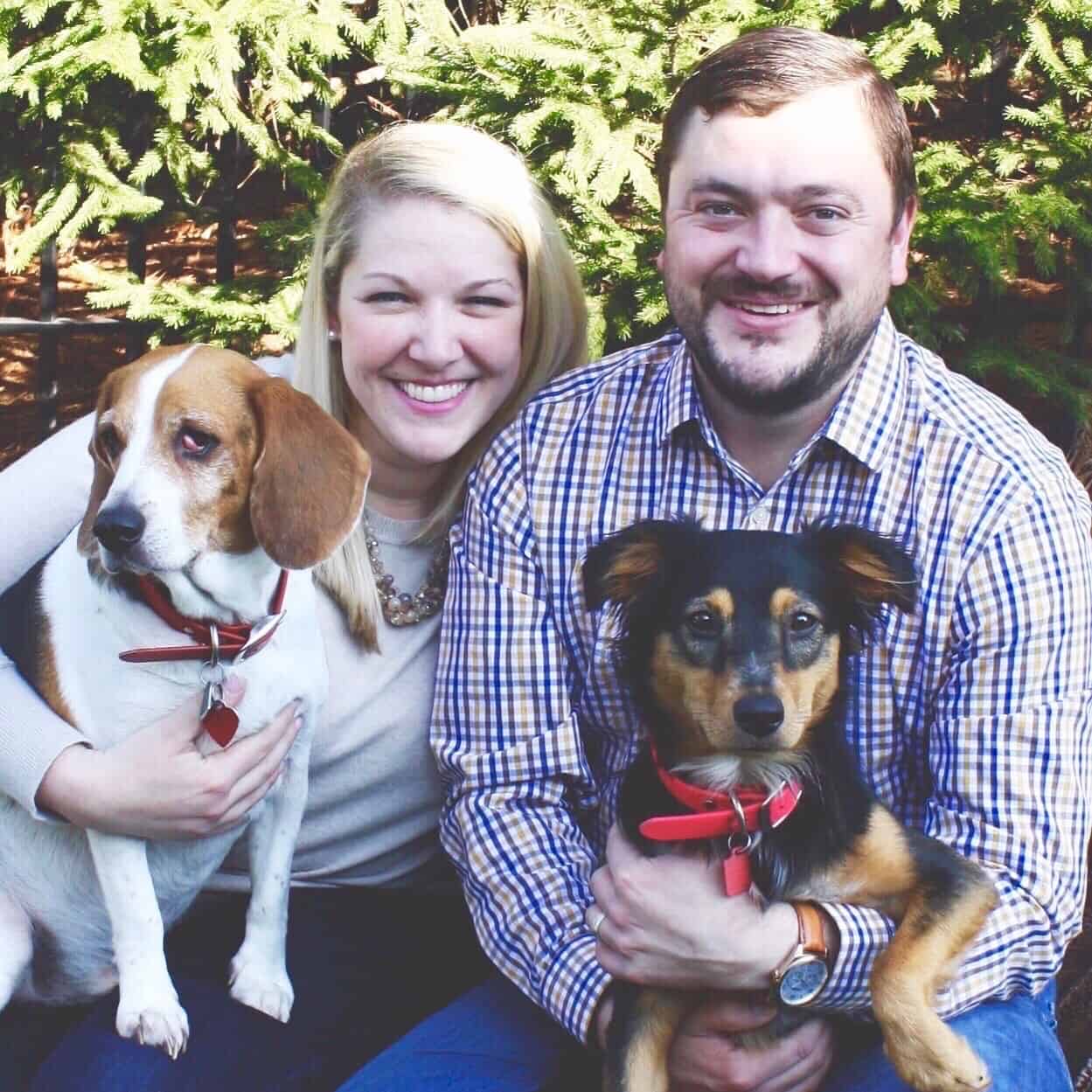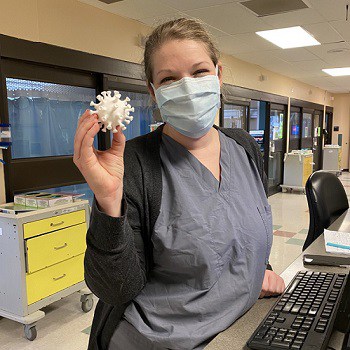Dr. Natalie Dunlap understands patients are scared about COVID-19, and she uses that to empathize with them and put them at ease.
As part of Regional One Health’s COVID-19 Unit, Dr. Dunlap is using her skills and experience as a hospitalist to provide patients lifesaving, compassionate care.
She said the team has learned a lot about how to treat patients, and that makes her confident for the future as health care providers continue fighting the pandemic.
Natalie Dunlap, DO, doesn’t shy away from the fact that COVID-19 is a scary virus. Instead, she uses that understanding to empathize with frightened patients and put them at ease.
Like everyone else, Dr. Dunlap felt a sense of foreboding as infectious disease experts predicted a massive influx of COVID-19 patients to America’s hospitals.
But unlike most people, she knew she had the skills and training to help – so when Regional One Health asked for volunteers to staff its COVID-19 unit, Dr. Dunlap raised her hand.
“I remember feeling a little on edge when we were waiting for our first patients, but when I saw how much good we could do, that grew the fire in me to keep going,” she said. “I understand the fear surrounding the virus, and when I meet a patient I always start by acknowledging their fear.”
“I tell them, ‘I know you’re scared, but this is what we’ll to do help you get through this.’ After that, I sense a calmness in myself and my patients.”
A desire to help people in their worst moments is what drew Dr. Dunlap to health care.

Dr. Dunlap knew serving on the COVID-19 Unit would mean making sacrifices to keep her family safe, but she felt called to do her part to help patients in need: “I felt it was our duty to help these patients in such a scary time.”
After earning her medical degree in her native Kansas City, she went to University of Tennessee Health Science Center for her med/peds residency. For a physician who is driven to continually learn and to use that knowledge to provide the best care for her patients, it was a perfect fit.
Med/peds is the study of internal medicine and pediatrics, and as a hospitalist, Dr. Dunlap helps oversee the general medical care of hospitalized patients at Regional One Health. That means no two days are the same, and her patients run the gamut in terms of conditions and medical needs.
When COVID-19 emerged, she knew her chosen specialty gave her the ideal skills and mindset to help this unique new group of patients.
As a respiratory illness, COVID-19 is best managed through the type of therapeutic, non-surgical medical care that hospitalists specialize in. Furthermore, hospitalists thrive in a constantly evolving situation, and with COVID-19 being a novel virus, providers must innovate treatments and develop ways to keep themselves and others safe while providing care.
“There is a lot of unknown with this disease, but going into medicine, we all enjoy learning – and every day has been a learning opportunity,” Dr. Dunlap said.
All of that made one thing clear to Dr. Dunlap: No matter how challenging the situation became, she needed to be there to help.
“As internal medicine specialists, this is our time to step up,” she said. “That lit the fire in me – we are the physicians that can take care of these patients and see them through critical illness and recovery. I felt it was our duty to help these patients in such a scary time.”
It has been incredibly rewarding.
First and foremost, Dr. Dunlap said, Regional One Health’s COVID-19 unit has provided good outcomes for patients. “At the end of the day, we’ve been able to do a lot of good,” she said. “The more we learn about this illness, the more we’re able to help.”

“I feel really good about the work we’ve done,” Dr Dunlap said. “If we get a second wave., we’ll be able to go into it with calm minds. We’re ready for it if it hits again.”
She has also been inspired by her colleagues.
Dr. Dunlap credited fellow hospitalist Dr. Amber Thacker for setting up a COVID-19 unit that runs seamlessly. She said the doctors, nurses, therapists and other members of the team have created an environment where they feel comfortable bouncing ideas off each other and talking through their experiences – both the uplifting and the challenging.
“While it’s been sad to see how this has affected our nation, I think the medical community’s response and Regional One Health’s response specifically have been really wonderful,” she said. “Everyone has been willing to do their part, and we’ve created a cohesive, supportive team.”
Although Dr. Dunlap looks forward to a return to normal life – enjoying Memphis’s restaurant scene with her husband, catching up on reading and spending time with her two dogs – she also feels ready to answer the call to continue putting fear aside and caring for COVID-19 patients.
“I feel really good about the work we’ve done,” she said, “and I also feel at peace with how things will go forward if we get a second wave. We’ll be very prepared for it, and we’ll be able to go into it with calm minds. We’re ready for it if it hits again.”

